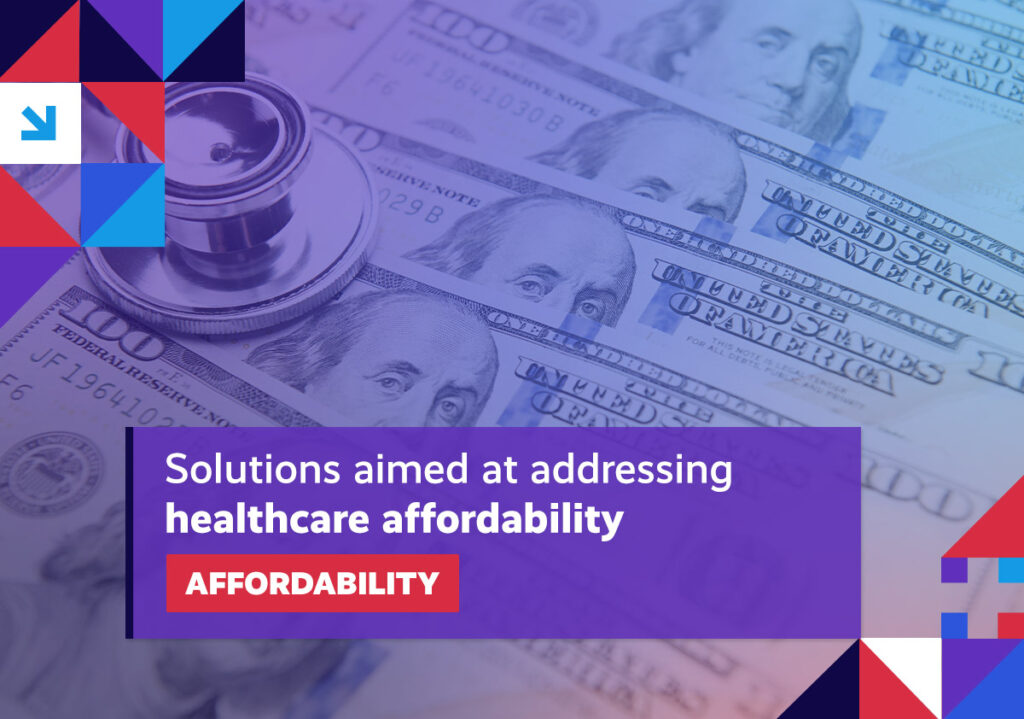A quick roundup of the issues driving the healthcare reform conversation.

Week in Review
MEDICARE ADVANTAGE Medicare Advantage continues to distinguish itself from traditional Medicare.
Quick takeaway: If Medicare Fee-for-Service (FFS) operated like Medicare Advantage (MA), the program’s solvency would be extended by 17 years.
Digging deeper: The sustainability of the Medicare program has been a longstanding concern, especially as more Americans age into the program, with estimates projecting the program’s funding to run out by 2031 at current levels.
But, if utilization in FFS was brought in line with that of MA, the program’s solvency would extend to 2048, according to a new study, which found that beneficiaries enrolled in FFS use hospital and post-acute services at a higher rate than those enrolled in MA plans.
What it means: The analysis only adds to the established body of research showing how Medicare Advantage outperforms traditional Medicare in a number of areas, including better health outcomes, saving beneficiaries and taxpayers money, and improving health equity.
PBM VALUE Legislation targeting PBMs threatens to drive up healthcare costs for everyone.
Quick takeaway: Proposed restrictions on private contracting terms between pharmacy benefit managers (PBMs) and health plans demonstrate a fundamental lack of understanding about how markets work.
Digging deeper: With so much legislative and regulatory attention being paid to PBMs and their role in the drug supply chain, there’s growing concern that attempts to bend the prescription drug cost curve are misguided and would do more harm than good.
This is underscored in a new study focused on a current federal proposal targeting “delinking” in the PBM space. Health policy researchers estimate that targeting free market performance-based incentives that lower drug costs for consumers (in other words, delinking), would hand drugmakers a financial windfall of up to $32 billion annually.
What it means: Stakeholders are cautioning policymakers that the path they’re headed down would not only weaken PBMs’ negotiating power against Big Pharma, but undercut any savings they hoped to achieve, as echoed by a team of experts in a separate new paper focused on the critical role that PBMs play in connecting consumers to affordable prescription drugs. The authors also examined recent anti-PBM legislation in Congress, concluding that the proposals would do nothing to improve competition and would only serve the special interests (Big Pharma’s) pushing the policies.
WEIGHT-LOSS Rx The growing popularity of weight-loss drugs poses real dangers to employers’ bottom lines.
Quick takeaway: Americans’ demand for these drugs threatens to blow up the cost of covering employees’ health benefits.
Digging deeper: Prescriptions for weight-loss drugs have driven up healthcare costs for employers by more than $300 per insured worker this year. In fact, it’s estimated that through 2025, the cost of covering these drugs will continue to go up, from $324 per insured member this year up to $500 in two years.
What it means: Beyond the financial impact to employers, experts are raising the alarm as cost and demand for this growing class of drugs threaten to overwhelm a healthcare system still reeling from a global pandemic.
Spotlight

| You can keep up with the latest by following the Health Action Network on X and by liking us on Facebook. And, be sure to check us out on LinkedIn, too. As always, let us know if there’s something you’d like to see covered in a future newsletter. |
The Health Action Network includes everyday Americans—families, workers, businesses, patients, providers, neighbors, and friends. We are working together because we support market-based solutions that offer better healthcare choices and help build a stronger economy. The Health Action Network is an Elevance Health, Inc., initiative.
